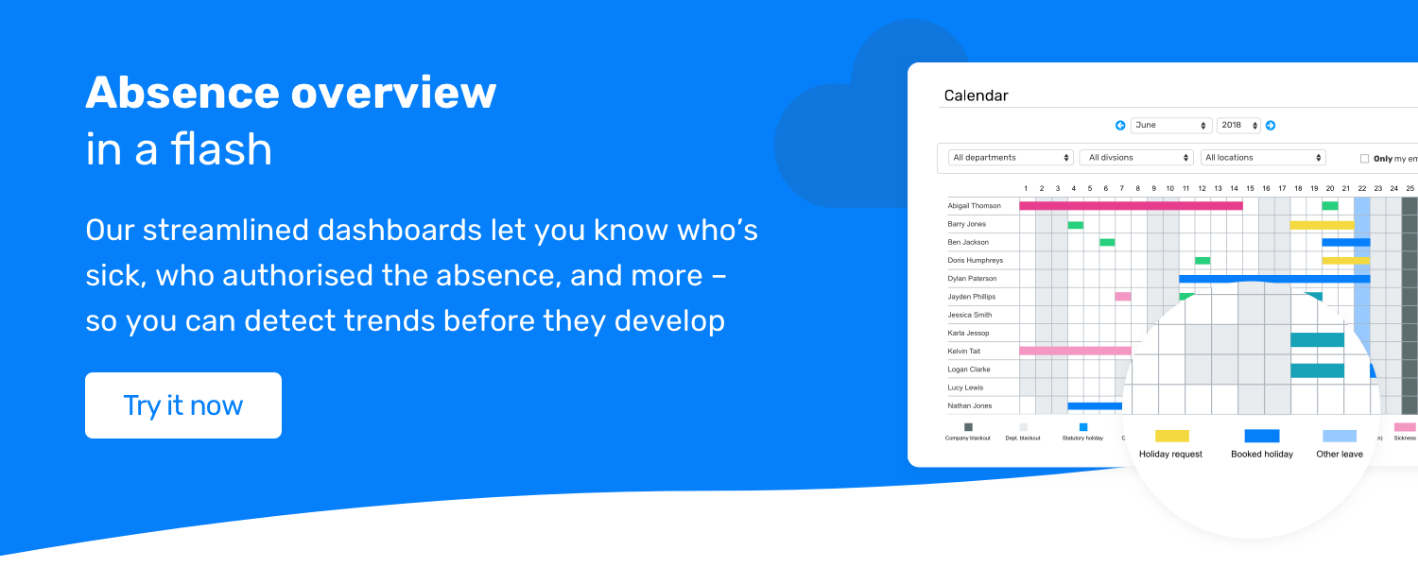This kind of presenteeism is exactly why it’s so important to be understanding of those who do feel the need to be signed off sick, and know how to support them.
But it does raise the question:
“What do you and your employees need to know about working whilst signed off sick?”
We cover whether employees are able to still work while signed off sick, what happens if they recover quicker than expected, what self-certifying means, and whether it's different if a doctor has signed them off.
Skip to:
What is employee self-certification for sickness?
If one of your staff members reports in sick, then they can self-certify for up to seven days. What this means in practice is there is no need for a doctor’s note, but you can ask employees to fill out a form on their return to work explaining the reason why they were off.
When employees can get signed off sick
If an employee is sick for longer than seven consecutive days (including non-working days) they will need a doctor’s note, also called a 'fit' note. This will either say whether an employee is “fit to work” or “not fit to work”.
If your staff member is off for longer than four weeks, then they can be considered off long-term sick.
What to do if an employee is signed off sick
If an employee is signed off sick, you might wonder if you should leave them to recover in peace, or if you’re allowed to contact them, or even if they should be working at all. There might be work-related matters you really need to talk to them about and projects that need handing over but where does it leave employers?
The simple answer is there is no one right answer.
It ultimately depends on the circumstances, but suffice to say exercising a bit of common sense and being cautious is a good idea. Is it an urgent matter or could it wait until the employee returns? Are you putting the employee under pressure to return before fully recovered? Could it be perceived as harassment, or will their illness be aggravated by your contact? You need to consider all these aspects before contacting them.
Alternatively, a phone call asking how they are can be a very positive thing, shows you care and can actually aid recovery.
Ultimately, it depends on the situation and the employee. If it’s a simple cold and you need to find out about handing over a project they were working on it’s probably fine. If it is a more serious long-term illness, contacting them about work-related matters might not aid their recovery.
Can employees work whilst signed off sick?
The question of whether an employee can work while signed off depends on the individual circumstances, and is a bit of a legal grey area. It's possible an employee might be too ill to make it into the office but can work remotely from home. However, if they aren’t fit to make it to the workplace, then they are arguably not fit to work either.
It may be that employees recover earlier than the determined date on their 'fit' note, or may want to resume working again sooner than planned. There's nothing that strictly prevents this from occurring, pending a discussion and agreement between employee and employer. Employers may want to undertake risk assessments to make sure they can provide a suitable working environment for the employee, including any reasonable adjustments.
Employees who work remotely
If your employee works from home regularly and opts to do that whilst ill, then they could still be considered working. If you discover an employee working while they are signed off, you may want to discourage this until the employee has fully recovered.
In this case, it might be an idea to speak to both employee and manager to make it clear that there isn't an expectation for employees who are ill to continue working before they are better.
You can track and monitor employee sickness using an absence management system.
Clear absence policies - aligning with your culture
One way to make certain everyone knows what should happen in the event of sickness is to include it in your sickness absence policy. You may wish to specify that if they phone in sick or are signed off by a doctor, they are considered off sick and shouldn't work until they/their healthcare professional feels they have recovered.
From an insurance perspective, it makes sense to have such a policy in place - if you continue to allow an employee to work while signed off it could represent a breach of your duty of care as an employer. This could potentially make you liable for any consequences of an employee returning to work whilst still unwell.
If an employee does want to return to work whilst signed off, it’s good practice to get clearance from their doctor first that they are fit to carry out certain duties at work. Their doctor may also suggest ways they can return to work but their work can be modified to allow them to do so.
Easily store employee sickness records securely with Breathe's absence management software. Why not take out a free trial today?
.webp)





.webp)
